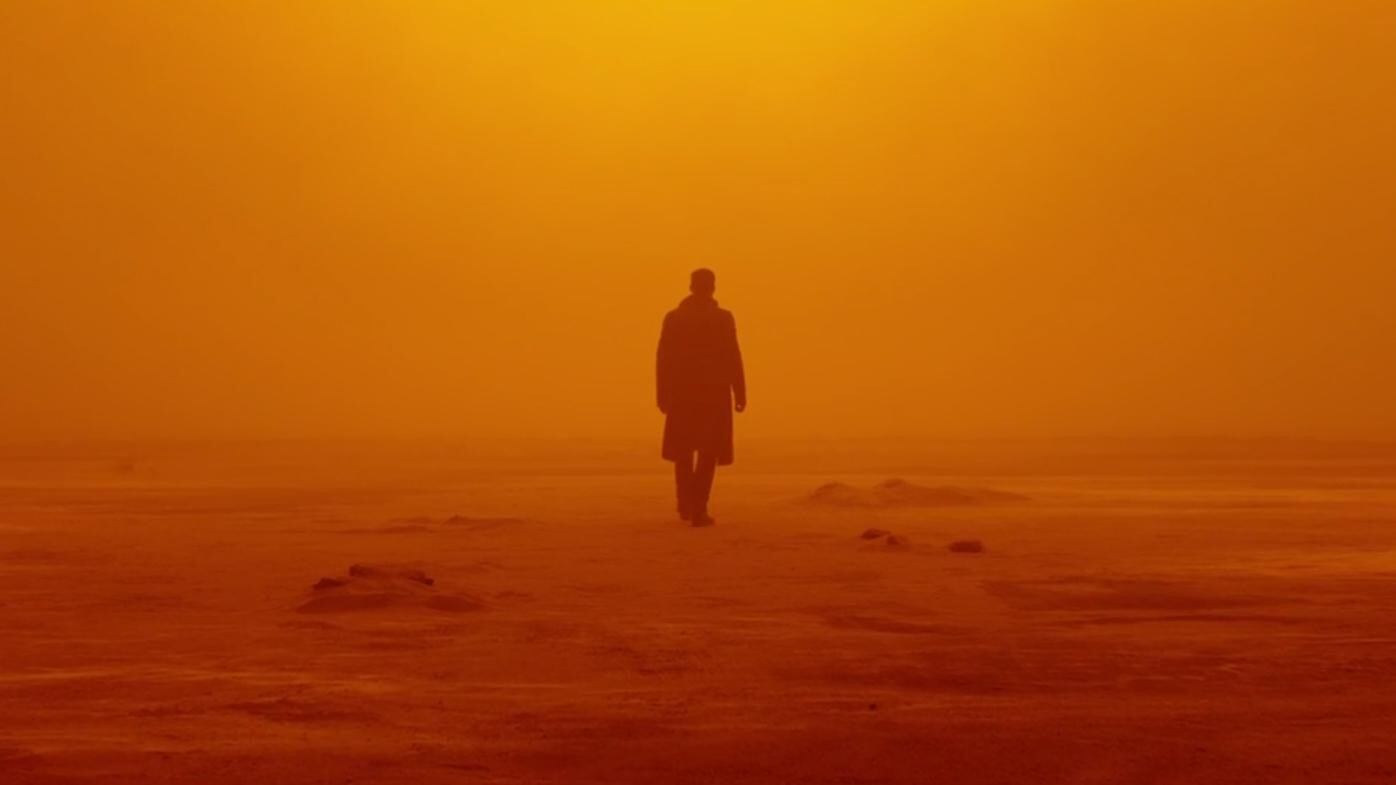When you say the name Sir Roger Deakins, most movie buffs enter a state of mouth-agape rapture. Now, thanks to the Cinemagic Theater, they can join fellow worshippers for a seven-film retrospective that will take audiences on a sumptuous journey through the Oscar-winning cinematographer’s career.
Most people probably first heard Deakins’ name when he won his first Academy Award (for the soulful sequel Blade Runner 2049) or his second (for the World War I epic 1917). But the England-born visionary’s career reaches back decades and includes collaborations with countless beloved directors, including Sam Mendes, Denis Villeneuve, Andrew Dominik and the Coen brothers.
Deakins’ compositions occasionally feel too rigid or precise (especially compared with the fluid imagery of contemporaries like The Tree of Life’s Emmanuel Lubezki and Dunkirk’s Hoyte van Hoytema), but there’s no denying the overwhelming beauty of his work. Below is your guide to the films featured in the retrospective, which begins Friday, Sept. 9.
1984 (1984)
Director Michael Radford’s version of George Orwell’s dystopian novel stars John Hurt as Winston Smith. It wasn’t until recently that the film’s original coloring was restored; the corrected version is the one Cinemagic will be showing. Sept. 10 and 13.
The Shawshank Redemption (1994)
It’s fashionable to bash director Frank Darabont’s adaptation of Stephen King’s novella Rita Hayworth and Shawshank Redemption (amazing how bad a great IMDb rating can be for a film’s reputation), but it really is that good. Deakins skillfully captures the monochromatic claustrophobia of the Maine penitentiary where Andy Dufresne (Tim Robbins) and Ellis Boyd Redding (Morgan Freeman) labor under the reign of a warden (Bob Gunton) who may be Satan himself. Sept. 9.
No Country for Old Men (2007)
How’s this for symmetry? Javier Bardem played the bowl-cut-sporting villain of this Coen-directed Cormac McCarthy adaptation...then went on to play a platinum-blond Bond villain in Sam Mendes’ Skyfall, which Deakins also shot. The moral of the story? Deakins and evil Bardem with weird hair are a winning combination. Sept. 11 and 15.
The Assassination of Jesse James by the Coward Robert Ford (2007)
Reviews were lukewarm for this Andrew Dominik-directed Western when it was first released, but it’s risen in the estimation of many cinephiles in the years since. Brad Pitt plays James and Casey Affleck (who, like Deakins, received an Oscar nomination) plays Ford. Sept. 11.
A Serious Man (2009)
The scabrous absurdism of the Coen brothers has rarely felt as brutal and true as it does in this dark comedy, about a Minnesota physics professor (Michael Stuhlbarg) whose life crumbles alarmingly quickly when his wife leaves him in 1967. In addition to being tragic and hilarious, the film is also a lovingly detailed portrait of life in a midwestern Jewish community. Sept. 11 and 14.
Sicario (2015)
Confession: I’ve never liked Denis Villeneuve’s drug war saga, which has always struck me as lip-smacking exploitation masquerading as serious art (despite great performances by Emily Blunt, Benicio del Toro and Josh Brolin). But many fans of Villeneuve and Deakins rate it higher than I do, so completists will want to check it out. Sept. 10 and 13.
Blade Runner 2049 (2017)
Visually and emotionally, Villenueve and Deakins’ third collaboration is one of the most exquisite films of the past decade. Set 30 years after Ridley Scott’s original Blade Runner (1982), the sequel stars Ryan Gosling as K, an android detective searching for fugitive Rick Deckard (Harrison Ford) with the help of his holographic lover (Ana de Armas). Sept. 10 and 12.
